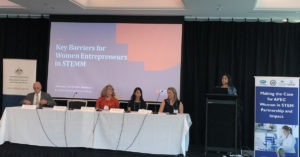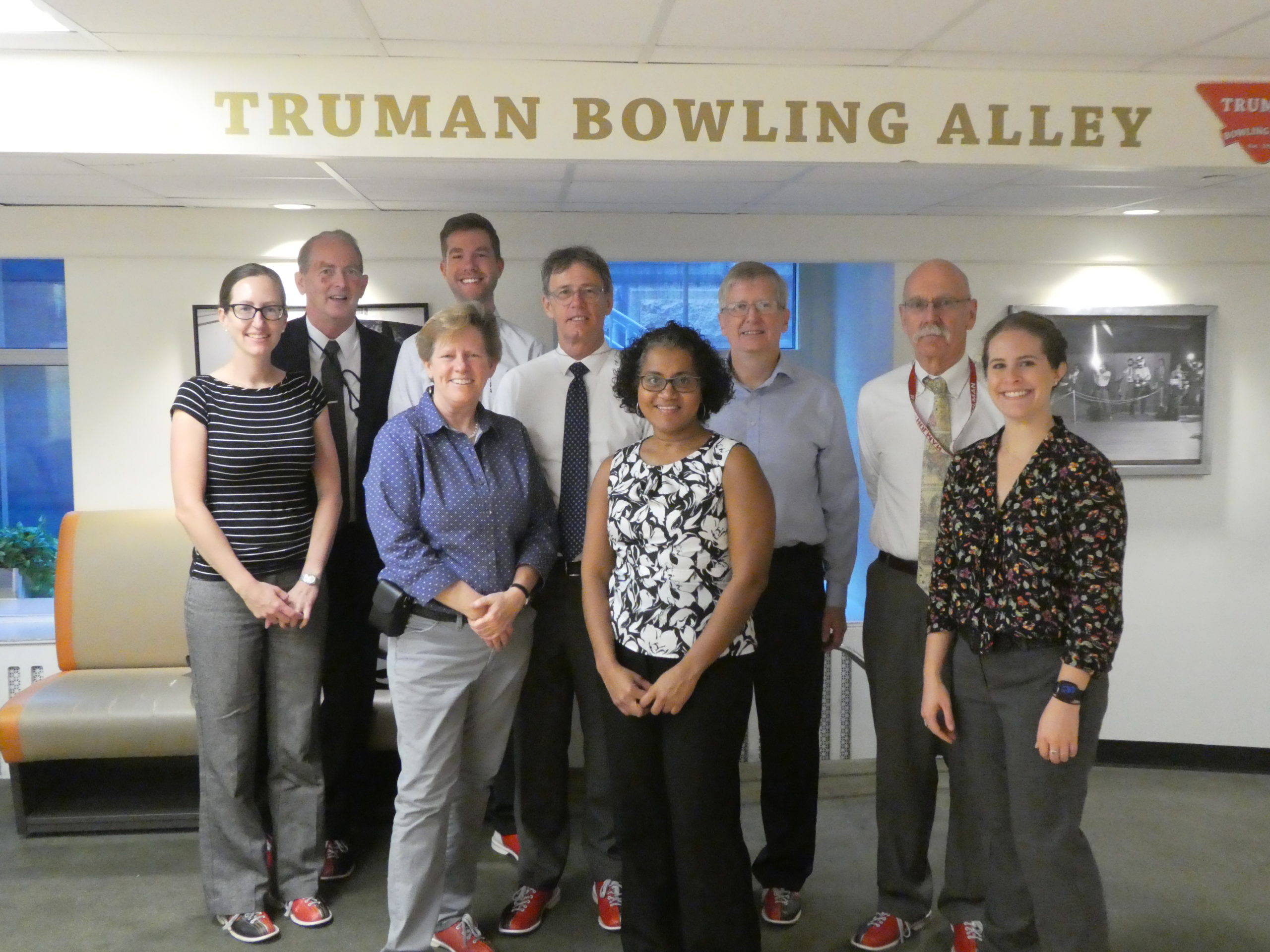
I was very pleased to be selected as IEEE-USA’s Engineering & Diplomacy Fellowship at the U.S. Department of State, where I served as the Senior Science and Technology Advisor within the Office of Science and Technology Advisor to the Secretary of State (STAS). There were five of us in the office when I started on 4 September 2018.
We were a very diverse group, in terms of educational backgrounds, technological topical interests and understanding, prior assignments, and position titles. Two of us were Foreign Affairs officers, one was a Foreign Service officer who had done two overseas tours, another was an American Association for the Advancement of Science (AAAS) fellow, and an intern in the Pathways Intern Program completing a Master degree in Foreign Policy. The office size had been significantly “downsized,” from 12 to five, as part of the restructuring under Secretary Tillerson’s administration. The office director was in an acting position while a search for a new Economic Growth, Energy, and the Environment Undersecretary was conducted. Keith Krach was appointed Undersecretary in June 2019 after which a search for a new director of the STAS office was initiated.
One of my initial primary assignments was as the State Department representative to the STEM education strategic development cross-government team. The team included representatives from each cabinet department as well as several other agencies, including NASA, the Smithsonian, NIST, NIH, and NSF. I participated in the writing and revisions of the final plan as well as in the implementation plan. My background in higher-level STEM education, activity as an ABET accreditation evaluator (including several international accreditation visits), and several international STEM design and development activities proved very valuable, especially in having the credibility to provide input from an international perspective. I was also able to explain and justify why we needed to look beyond the U.S. borders to truly develop the best STEM education plan and implementation activities. The plan was officially released in December 2018 and can be found here. While at the State Department, we also worked with the Organization for Economic Co-operation and Development (OECD) on the Benchmarking Higher Education System Performance report, which was released on 1 August 2019. It was the first comprehensive analysis of OECD higher education systems in over a decade.
Some additional highlights from my year at the State Department include:
 I served as a representative to the Asia-Pacific Economic Cooperation (APEC) Chief Science Adviser meeting held in Brisbane, Australia in October 2018. My activities at the meeting included leading a panel on Women in STEM (pictured), and as an advisor for the Global Innovation through Science and Technology (GIST) program. The GIST program at the APEC meeting was focused on entrepreneurial start-ups lead by women from across the APEC economies.
I served as a representative to the Asia-Pacific Economic Cooperation (APEC) Chief Science Adviser meeting held in Brisbane, Australia in October 2018. My activities at the meeting included leading a panel on Women in STEM (pictured), and as an advisor for the Global Innovation through Science and Technology (GIST) program. The GIST program at the APEC meeting was focused on entrepreneurial start-ups lead by women from across the APEC economies.- I was the U.S. representative to the Foreign Ministries Science & Technology Advice Network (FMSTAN) February 2019 meeting held in Muscat, Oman. FMSTAN was started by STAS in 2016 with four countries, and now has members representing more than 25 countries. The Network holds two meeting per year to share development and training ideas and activities, discuss and address S&T related topics, especially those that are impacting (or could potentially impact) member states (e.g., global climate change), and to discuss barriers and potential solutions to improve scientific input to national, regional and community decision-makers.
- I participated in numerous discussions related to Artificial Intelligence (AI) in conjunction with our efforts within the OECD geared toward developing an international set of norms and guiding principles for AI research, development, and implementation. I was involved in regular update meetings on AI activities in other countries and regions, both like-minded and adversarial.
- I was an active member of the Quantum Information Science (QIS) sub-committee of the National Science and Technology Council. The sub-committee addresses, plans, and directs federal R&D funds for QIS-related programs, and cooperates with allies in international QIS development and application development. Many federal agencies have representatives on the committee, including the National Institute of Standards and Technology (NIST), the National Science Foundation (NSF), the Department of Energy, NASA, FBI, and State. As part of this duty, I was actively involved in the implementation plans for the National Strategic Overview for Quantum Information Science. The Strategic Overview was released in September 2018. We also tracked developments in non-allied countries.
- I had numerous opportunities to attend “think-tank” presentations related to many of the emerging technologies and topics associated with my topical portfolios and assignments. I also visited a number of Embassies to participate in and attend meetings, workshops, and events. The highlights in many cases were, of course, the dinners and receptions showcasing their national foods and drinks.
 My assignments, activities, and overall experiences throughout the year were much greater than I had anticipated. Making regular trips to the White House for committee meetings and events was something that I had also not anticipated. Making presentations at international conferences and meetings as the U.S. representative, and traveling on a diplomatic passport (the cover letter with the passport pointed out that it did not include diplomatic immunity) was another unanticipated highlight of my time at State. One additional highlight was bowling at the White House after working on a critical bio-related document. Two hours of bowling with colleagues from NIH, USDA, and OSTP was totally unexpected and, as I found out afterward, a very unusual opportunity.
My assignments, activities, and overall experiences throughout the year were much greater than I had anticipated. Making regular trips to the White House for committee meetings and events was something that I had also not anticipated. Making presentations at international conferences and meetings as the U.S. representative, and traveling on a diplomatic passport (the cover letter with the passport pointed out that it did not include diplomatic immunity) was another unanticipated highlight of my time at State. One additional highlight was bowling at the White House after working on a critical bio-related document. Two hours of bowling with colleagues from NIH, USDA, and OSTP was totally unexpected and, as I found out afterward, a very unusual opportunity.
One of my only regrets is that the fellowship lasted only a year. I believe my productivity would have been greater during a second year since it takes several weeks/months to get a good understanding of the work, processes, and to develop working relationships and contacts. I would not hesitate to return to State were the opportunity to arise.
Want to spend a year in Washington?IEEE-USA is seeking qualified U.S. IEEE members to spend a year in Washington working as advisers to the U.S. Congress and to the U.S. Department of State or U.S. Agency for International Development (USAID). The fellowship program gives U.S. IEEE members an opportunity to learn firsthand about the public policy process while imparting their knowledge and experience to policymakers. The deadline to apply for 2021-2022 Fellowships is 7 December 2020 at 5 PM ET [icon name=”info-circle” class=”” unprefixed_class=””] Get more info |
Dr. Daniel Moore recently retired from his professorship of electrical and computer engineering at Rose-Hulman Institute of Technology in Terre Haute, Indiana. He is an IEEE Life Senior Member and served as IEEE-USA’s Engineering & Diplomacy Fellow at the U.S. Department of State in 2018-2019. Dr. Moore’s areas of expertise include engineering design, electronics, engineering educational methods, engineering ethics and international design projects. He is involved in undergraduate capstone design projects and international team-based projects, and is co-director of dual master’s degree program with the University of Applied Sciences in Ulm, Germany. Professionally, he is associate editor of the Advances in Engineering Education online, a peer-reviewed journal; he has been a program chair and steering committee chair for the Frontiers in Education Conference; the division chair for the American Society of Engineering Education’s Educational Research Materials division; and is an ABET program evaluator at national and international locations.






